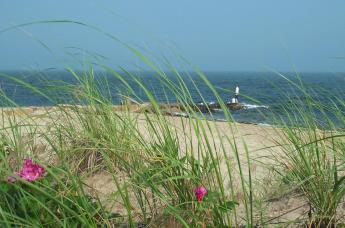
NEOSEC Links |
|---|
| meetings |
| about Ocean Literacy |
| Ocean Literacy Summit |
| contacts |
One Big Ocean |
The New England Ocean Science Education Collaborative (NEOSEC) is a collaboration among a range of institutions from across the region, including museums and aquaria, universities, and research institutions. We recognize that understanding the ocean is integral to comprehending the Earth’s systems and our own life on this planet, and have identified ocean science literacy as a key goal for all of New England. Mission and Vision Our mission and collective purpose are to leverage New England’s extraordinary assets, to engage the public in understanding the vital connections between people and the ocean. In our vision of the future:
Governance and InfrastructureNEOSEC is led by a Governing Council of representatives from each member organization, which is responsible for planning, prioritizing, tasking work groups, monitoring progress on activities, and facilitating communication within the region. The Council, with sitting Chair, Past-Chair, and Chair-Elect, holds periodic conference calls and in-person meetings. For the present, COSEE-NE serves as the communication hub for NEOSEC, providing an electronic infrastructure (listserv and website) and staffing.
Institutional Commitments NEOSEC members have agreed to:
|
This material is based on work supported by the National Science Foundation under Grant No. 0215456. Any opinions, findings and conclusions or recommendations expressed in this material are those of the author(s) and do not necessarily reflect the views of the National Science Foundation"